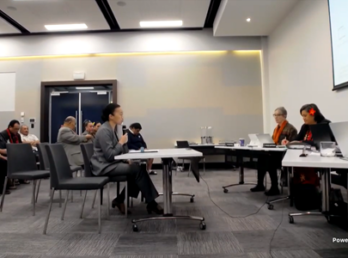COVID-19: Implications For Commercial Contracts articles
Date
12 Mar 2020
Related Expertise
The outbreak of COVID-19 (i.e. the Coronavirus) – now officially a pandemic – is posing significant challenges for governments and the private sector, around the globe.
We are being bombarded with news stories about rising rates of infection, state-imposed geographic quarantines, stock market volatility and the disruption COVID-19 is causing to industry sectors, supply and demand chains, and global trade and commerce.
With growing uncertainty around the financial and economic impact of COVID-19, parties to commercial contracts could foreseeably argue the outbreak gives them the right to avoid further performance under the contract.
In this article, we look at the key legal bases for arguing COVID-19 excuses a contracting party’s non-performance. We also set out other legal risks presented by COVID-19, and some general recommendations, in relation to commercial contracts.
Legal bases for arguing COVID-19 excuses non-performance
1. Force majeure
A “Force majeure” clause will generally excuse a party from continued performance under a contract when a “force majeure” event occurs. In some cases, it will give a party the right to cancel the contract.
The contract itself will define what is (and isn’t) a “force majeure” event. It is typically an event beyond a party’s control or contemplation that prevents that party from performing its contractual obligations – common examples include an “Act of God”, “natural disaster”, “terrorism” and “war”.
With COVID-19, an affected party would need to show that the outbreak qualifies as a “force majeure” event under the contract and that it made continued performance impracticable or impossible.
Whether COVID-19 amounts to a “force majeure” event depends on the wording of the contract. For example, an affected party might have arguable grounds for non-performance if “force majeure” includes the terms ‘epidemic’, ‘disease’, ‘quarantine situation’, a ‘public health emergency’ or ‘biological contamination’. Separately, if “force majeure” includes the term ‘act of government’, a geographic lockdown would arguably be covered and excuse non-performance. However, consider the scenario where “force majeure” is defined simply as “an event beyond the parties’ control or contemplation” – if affected parties entered into a contract after COVID-19 hit the mainstream media, can they justifiably say that COVID-19 was beyond their contemplation?
2. Frustration
If a contract doesn’t contain a “force majeure” clause, or if the “force majeure” clause itself isn’t broad enough to cover COVID-19, an affected party could argue that the contract has become “frustrated”.
“Frustration” is a common law principle that excuses non-performance. In general terms, the affected party must show that a reasonably unforeseeable event has occurred, which significantly changes the relationship between the parties, and which makes continued performance under the contract more onerous or impossible.
Arguable grounds for a “frustration” claim might exist if a party can show that COVID-19 compromised a specific or essential element of the contract (e.g. quarantine restrictions have made a unique performance method or performance at a specific time impossible; a key person becomes unavailable due to COVID-19-induced sickness).
Temporary changes are unlikely to amount to the contract becoming “frustrated”, even in the context of an epidemic – for example, in 2004 a Hong Kong court ruled that a 24-month lease wasn’t “frustrated” when a mandatory, 10-day SARS-related isolation order was imposed on the tenant.
Note that a separate basis for a “frustration” claim might exist where a change in law occurs, making the contract illegal (e.g. a prohibition on manufacturing operations in a specific geographic area).
3. Material adverse change / event
Contracts with “material adverse change” or “material adverse event” (“MAC”) clauses in them typically also provide suspension or termination rights. Broadly speaking, a “MAC” is any event that could reasonably be expected to have a material adverse impact on a party’s continued performance under a contract or on that party’s financial performance or position.
Whether or not COVID-19 amounts to a “MAC”, excusing non-performance, again depends on the wording of the contract.
Other legal risks that COVID-19 presents for commercial contracts
COVID-19 presents a number of other legal risks for commercial contracts. A high-level overview of these risks is set out below. We recommend you review your commercial contracts to assess these risks:
• Event of default: Is non-performance under the contract an “event of default”? “Event of default” clauses typically give a party enforceable rights against the other party, if an “event of default” occurs that affects that other party (e.g. the right for a shareholder, under a shareholders’ agreement, to buy the shares of another insolvent shareholder; the right for a bank, under a facility agreement, to require accelerated repayments if the borrower continually misses scheduled payments). The contract itself will define what is (and isn’t) an “event of default”. With COVID-19, an interesting question is whether self-imposed isolation, preventing further performance, would be an “event of default” under a contract.
• Notices: Does the contract require notice(s) to be given and, if yes, what is the required content of the notice(s), who must the notice(s) be given to and by when? For example, most “force majeure” or “MAC” clauses require an affected party to follow strict notice requirements. Failure to do so could invalidate an affected party’s claim.
• Guarantees, indemnities: Is there a risk that any guarantee or indemnity could be enforced by the other party(ies) and, if yes, what are the financial implications of that?
• Warranties, representations, undertakings, covenants: What is the risk of any of these forms of contractual promise becoming untrue or incapable of performance, due to COVID-19? What are the financial implications?
• Termination rights: Does the outbreak trigger any termination rights for the parties under the contract?
• Insurance: Does your insurance provide adequate cover for losses, arising out of non-performance, due to COVID-19? We recommend you check the timeframes within with any claims must be made and that you consult your insurance broker in this regard.
General recommendations regarding commercial contracts
We also make the following general recommendations regarding your commercial contracts:
• Communication: Maintain open lines of communication with your contractual counterparties, to manage expectations and reach agreed compromises around ongoing performance.
• Awareness of governmental decisions, administrative actions: Stay up-to-date with any government decisions or administrative actions that might affect your business and the industry in which it operates.
• Contract negotiations: With any contracts you are negotiating, now and in the future, include express reference to such terms as ‘infection’, ‘disease’, ‘pandemic’, ‘epidemic’ etc in “force majeure” clauses.
• Mitigation of losses: If you are seeking to rely on “force majeure” or “MAC” clauses in your contracts, ensure you are taking appropriate steps to mitigate your losses from the impact of COVID-19.
• Legal advice: Seek specialist legal advice to help you determine your rights and obligations under your commercial contracts.
The above overview has been provided for general information purposes only. It is not, nor is it intended to be treated as, legal advice, an exhaustive list of all possible legal bases to excuse non-performance under a commercial contract or an exhaustive list of all legal risks COVID-19 presents for commercial contracts, and is subject to change without notice.
Subscribe
Get insights sent direct to your email.



















